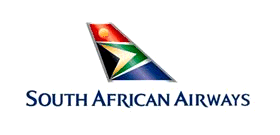 Labour Court slams SAA pilots' 'opportunistic' application
Labour Court slams SAA pilots' 'opportunistic' application
The SAA Pilots' Association (SAAPA) failed to show urgency in its Labour Court application to have the lockout of its members declared unlawful and unprotected and to have salaries from 2020 paid to its members.
This was part of the pilots' application to prevent the airline from using so-called "scab labour" – or replacement workers – while the union's members are locked out and on strike. The aspect of scab labour was not dealt with and is subject to SAAPA's appeal of a previous hearing in May where it also failed to convince the court.
SAAPA members have been locked out since 18 December last year and later took the further step of going on strike to prevent scab labour from being used by the airline, which it says is not allowed in terms of its regulating agreement.
SAAPA represents nearly 90% of the pilots at SAA.
SAA needs training pilots as it prepares to take to the skies again, following a recently announced public-private partnership between its shareholder, the Department of Public Enterprises (DPE), and a consortium as strategic equity partner. The Takatso Consortium has indicated that it sees the deadlock with SAAPA as one of the legacy issues the DPE must sort out.
A due diligence process is still under way.
The respondents in the case were SAA, its former joint business rescue practitioners and the minister of public enterprises in his official capacity.
Apart from not allowing additional affidavits from SAAPA to be permitted, Judge J Prinsloo struck the application from the roll for lack of urgency.
In December 2020, SAAPA filed an urgent application, seeking a final order declaring the lockout of its members by SAA to be unlawful and unprotected. In terms of SAAPA's regulating agreement, which governs the terms and conditions of employment of pilots with SAA, the union is the only bargaining agent for all pilots employed by the airline.
The agreement can only be ended by mutual consent.
SAA has long sought to renegotiate the agreement and SAAPA has resisted various attempts over the years to do so. SAA claims that the existing terms and conditions of employment applicable, particularly the pilots, have a negative impact on SAA's profitability.
Scathing judgment
The judge found that "it is evident from the notice of lockout that SAA reserved the right to lift, modify, amend, suspend, terminate or supplement the lock-out on written notice to SAAPA".
"The management pilots employed by SAA were excluded from the ambit of the lockout and have never been locked out by SAA. In an earlier application by SAAPA it was ruled that there is nothing in the Labour Relations Act which requires an employer to include all employees within the scope of an intended lockout."
In March this year, SAA amended the lockout to exclude certain pilots.
SAAPA then went on strike, including the seven pilots SAA excluded from the lockout. These seven pilots occupy vital and strategic positions at the airline.
SAA claimed in court that it is entitled to utilise replacement labour for those categories of pilots.
Opportunistic
SAAPA also wanted the Labour Court to order certain outstanding remuneration payments made by the airline to its members. But the Labour Court judge found, to her surprise, that SAAPA already has a similar claim pending in the High Court.
"This is nothing but an opportunistic attempt to get urgent relief in the Labour Court, whilst keeping the back door to High Court open, just in case," Prinsloo states in her judgment.
Regarding SAAPA's application to have the lockout declared unprotected or unlawful, Prinsloo said the Labour Court had already found in December 2020 that it is protected and dismissed SAAPA's attempt at the time.
SAAPA had argued that it became aware of certain other information to substantiate its claim, only after this time. "The reality is that the relief sought pertains to a lockout that commenced on 18 December 2020 and by the time this application was launched [April 2021] and argued [June 2021], the lockout has been in operation for more than six months. Urgency had long passed," stated Prinsloo.
"SAAPA cannot be permitted to have a second bite at the cherry. The relief sought to declare the lockout unlawful is therefore not urgent."
As for SAAPA's remuneration claim, Prinsloo ruled that "it is not sufficient for a party when approaching a court on an urgent basis to adopt the approach that it is of right entitled to preferential treatment, failing which it would suffer prejudice in the event that its urgent application is not granted".
"A party needs to demonstrate that it had also in asserting its rights, acted diligently and with the urgency that the matter it seeks to pursue requires. The applicant has failed in this regard. The application thus falls to be struck from the roll for the lack of urgency," she ruled.
Private arbitration proceedings earlier this year found that the Regulation Agreement could not be terminated on notice, unless explicitly rescinded by a subsequent agreement. Central to SAAPA's demands were that SAA must agree that the agreement should only be terminated when the last of its members leave the employ of SAA pursuant to a retrenchment process. SAA must also pay all its members who are to be retrenched three months' remuneration in lieu of notice.
SAAPA said in reaction to the ruling that SAAPA its members are "obviously extremely disappointed" with the outcome.
"We are reviewing the judgement, including the aspect that the merits of the case did not appear to be adjudicated upon, with our counsel. SAAPA is considering its further legal options," it said in a statement.
